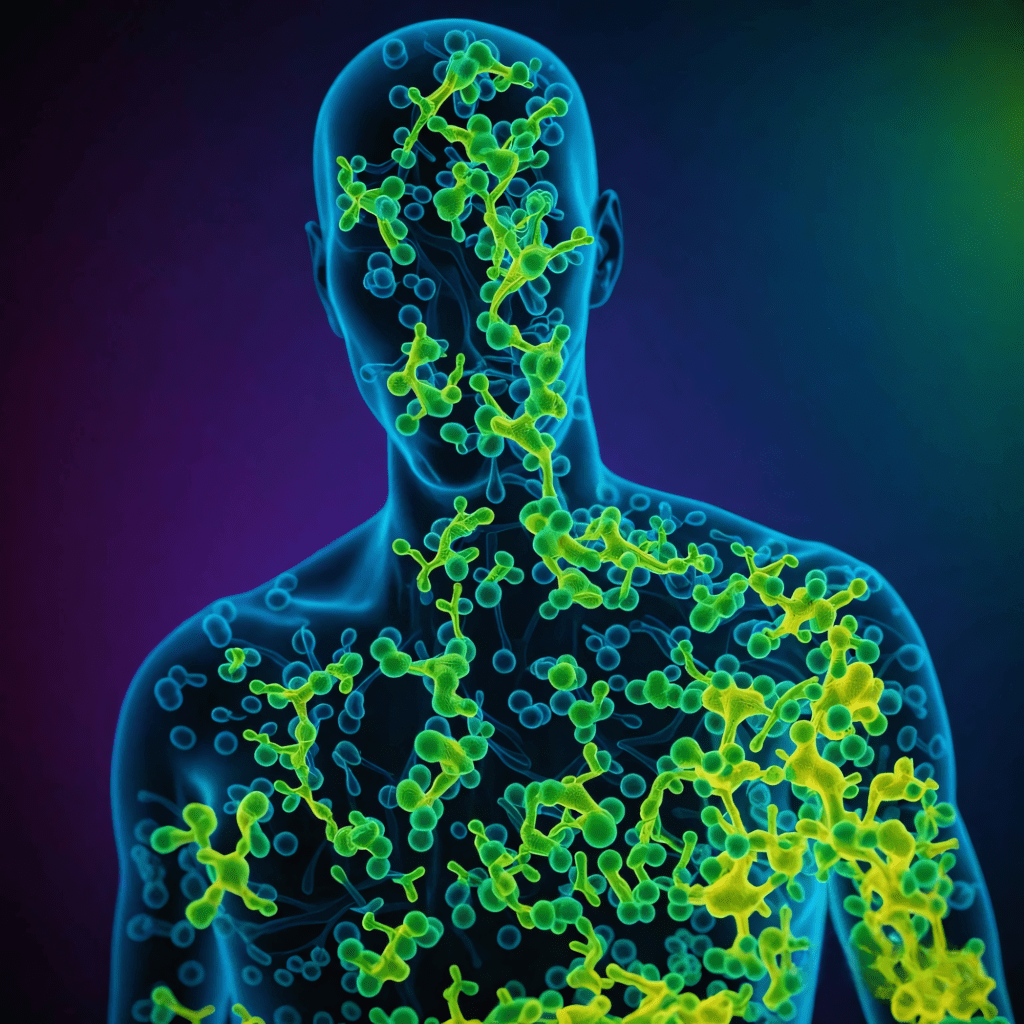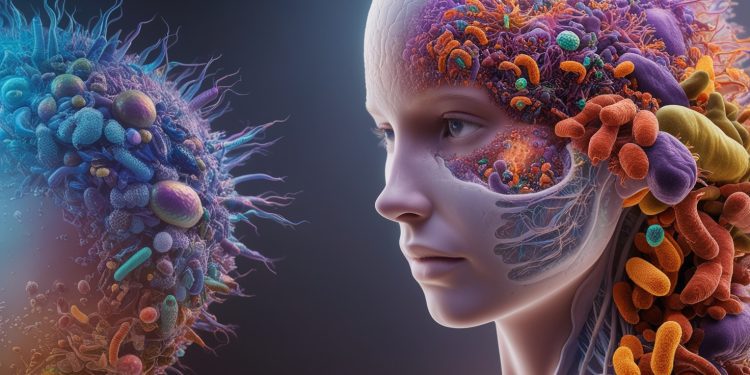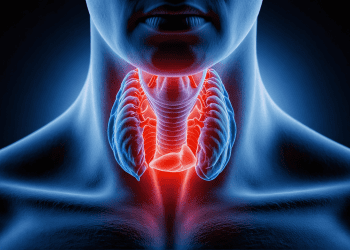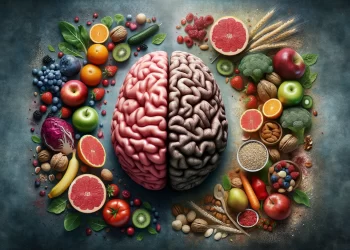Welcome to the fascinating world of the Human Microbiome! You might not realize it, but your body is home to trillions of microorganisms, including bacteria, viruses, fungi, and even archaea. Collectively, these tiny organisms form what we call the microbiota, while their genetic material is referred to as the microbiome. This intricate ecosystem plays a crucial role in maintaining our health and well-being.
What is the Human Microbiome?
At its core, the Human Microbiome is the diverse community of microbes that inhabit various parts of our bodies, such as our gut, skin, mouth, and even our respiratory tract. Each of these microbial populations has unique functions and interactions that can significantly impact our overall health. For instance, the gut microbiome is known for its role in digestion, while skin microbiota helps protect against pathogens.
Why Are Microbial Communities Important?
The importance of these microbial communities cannot be overstated. They are involved in numerous vital processes, including:
- Digestion and Nutrient Absorption: Microbes in our gut help break down complex carbohydrates and synthesize essential vitamins.
- Immune System Regulation: A balanced microbiome supports a healthy immune response, helping to fend off infections and diseases.
- Mental Health: Emerging research suggests that the gut microbiome may influence our mood and mental well-being, creating a fascinating link between our gut and brain.
Overview of the Article’s Objectives
In this article, we will explore the Human Microbiome in depth, covering its composition, development, functions, and the implications of dysbiosis (an imbalance in the microbiome). We’ll also discuss recent research advancements and future directions in microbiome studies. By the end of this journey, you’ll have a clearer understanding of how these microscopic inhabitants shape our health and what we can do to support a thriving microbiome. So, let’s dive in!
Composition of the Human Microbiome
The Human Microbiome is a remarkable and complex ecosystem composed of trillions of microorganisms that reside in various parts of our bodies. Understanding its composition is crucial to appreciating how these microbes influence our health and well-being.
Types of Microorganisms Involved
The Human Microbiome consists of a diverse array of microorganisms, including:
- Bacteria: The most abundant and well-studied group, bacteria play essential roles in digestion, metabolism, and immune function.
- Archaea: Although less studied, archaea are important in certain environments, such as the gut, where they help break down complex carbohydrates.
- Viruses: These include bacteriophages, which infect bacteria and can influence bacterial populations within the microbiome.
- Eukaryotes: This group includes fungi and protozoa, which also contribute to the microbial community and can affect human health.
Distribution of Microbiota Across Different Body Sites
The Human Microbiome is not uniform; its composition varies significantly across different body sites. Here’s a breakdown of some key areas:
Human Microbiome Distribution
| Body Site | Key Microbial Communities | Functions |
|---|---|---|
| Skin | Staphylococcus, Propionibacterium | Protection against pathogens, skin health |
| Gastrointestinal Tract | Bacteroides, Firmicutes, Lactobacillus | Digestion, nutrient absorption, immune modulation |
| Oral Cavity | Streptococcus, Neisseria | Digestion, oral health, protection against pathogens |
| Respiratory Tract | Streptococcus, Haemophilus | Defense against respiratory infections |
| Vaginal Tract | Lactobacillus | Maintenance of pH balance, protection against infections |
Each of these sites hosts unique microbial communities that perform specific functions vital for maintaining health.
Comparison of Microbial Cell Counts to Human Cells
Interestingly, the number of microbial cells in the human body significantly exceeds the number of human cells. Estimates suggest that there are around 100 trillion microbial cells in the human body, compared to approximately 30 trillion human cells. This means that microbial cells outnumber human cells by a ratio of about 3:1, highlighting the importance of these microorganisms in our biology.
Development and Evolution of the Microbiome
The Human Microbiome is not static; it evolves and develops throughout our lives, beginning at birth.
Initial Colonization at Birth
When a baby is born, it is first exposed to its mother’s microbiota, which plays a critical role in shaping the infant’s microbiome. Factors influencing this initial colonization include:
- Mode of Delivery: Babies born vaginally acquire different microbes compared to those delivered via cesarean section.
- Breastfeeding: Breast milk contains beneficial bacteria and prebiotics that promote healthy microbiome development.
Coevolution of Humans and Their Microbiota
Humans and their microbiota have coevolved over millennia. This relationship is often described as symbiotic, where both parties benefit. For example, while humans provide a habitat and nutrients for microbes, these microorganisms help digest food and synthesize essential vitamins.
Role of Lifestyle, Diet, and Environment in Shaping the Microbiome
The composition of the Human Microbiome can be influenced by various factors, including:
- Diet: A diet rich in fiber promotes a diverse microbiome, while high-fat and high-sugar diets can lead to dysbiosis, or microbial imbalance.
- Lifestyle: Physical activity, stress levels, and sleep patterns can all impact microbial diversity.
- Environment: Exposure to different environments, such as urban versus rural settings, can shape the microbiome due to varying microbial exposures.
The Human Microbiome is a dynamic and essential component of our biology, influenced by our environment, lifestyle, and diet. Understanding its composition and development helps us appreciate its critical role in maintaining our health.

Functions of the Human Microbiome
The Human Microbiome is a powerhouse of activity, playing several critical roles that are essential for our health and well-being. From aiding in digestion to protecting us from pathogens, the functions of our microbiome are vast and varied. Let’s explore some of the key functions of the Human Microbiome.
Metabolic Functions: Nutrient Processing and Energy Production
One of the primary functions of the Human Microbiome is its role in metabolism. The diverse bacterial communities in our gut help break down complex carbohydrates and fibers that our bodies cannot digest on their own. This process leads to the production of short-chain fatty acids (SCFAs), which serve as an important energy source for our cells.
- Nutrient Absorption: Microbes assist in the absorption of essential nutrients, such as vitamins B and K, and minerals like magnesium and calcium.
- Energy Production: The fermentation of dietary fibers by gut bacteria produces SCFAs, which not only provide energy but also contribute to gut health and reduce inflammation.
Immune System Interactions: Protection Against Pathogens and Modulation of Immune Responses
The Human Microbiome plays a crucial role in modulating our immune system. It helps train our immune responses and provides a barrier against harmful pathogens.
- Pathogen Resistance: Beneficial microbes compete with harmful bacteria for resources and space, effectively preventing infections.
- Immune Regulation: The microbiome influences the development and function of immune cells, helping to maintain a balanced immune response. This is particularly important in early life, where a healthy microbiome can reduce the risk of allergies and autoimmune diseases.
Contribution to Homeostasis and Overall Health
The Human Microbiome is essential for maintaining homeostasis within the body. It interacts with various systems to ensure that everything functions smoothly.
- Gut-Brain Axis: Emerging research indicates that the microbiome can influence mental health through the gut-brain axis, affecting mood and behavior.
- Metabolic Health: A balanced microbiome is linked to a healthy metabolism, reducing the risk of obesity and metabolic syndrome.
Dysbiosis and Its Implications
While the Human Microbiome is vital for our health, an imbalance in these microbial communities—known as dysbiosis—can lead to various health issues.
Definition and Causes of Dysbiosis
Dysbiosis refers to an imbalance in the microbial communities within the body. This can occur due to several factors, including:
- Antibiotic Use: Antibiotics can disrupt the balance of beneficial bacteria, leading to an overgrowth of harmful species.
- Dietary Changes: Diets high in sugar and low in fiber can negatively affect microbial diversity.
- Stress: Chronic stress can alter the composition of the microbiome, leading to dysbiosis.
Health Conditions Associated with Dysbiosis
Research has linked dysbiosis to a range of health conditions, including:
- Obesity: An imbalanced microbiome can affect metabolism and energy storage, contributing to weight gain.
- Inflammatory Bowel Disease (IBD): Dysbiosis is often observed in patients with IBD, suggesting a role in the disease’s pathogenesis.
- Cardiovascular Diseases: Certain microbial profiles have been associated with increased risk factors for heart disease.
Mechanisms by Which Dysbiosis Leads to Disease
Dysbiosis can lead to disease through several mechanisms:
- Increased Inflammation: An imbalanced microbiome can trigger inflammatory responses, contributing to chronic diseases.
- Altered Metabolism: Changes in microbial composition can affect nutrient absorption and energy metabolism, leading to obesity and metabolic disorders.
- Immune Dysfunction: Dysbiosis can disrupt the normal functioning of the immune system, increasing susceptibility to infections and autoimmune diseases.
The Human Microbiome plays a vital role in our health through its metabolic functions, immune system interactions, and contributions to homeostasis.
However, dysbiosis can lead to serious health issues, highlighting the importance of maintaining a balanced microbiome for overall well-being. Understanding these functions and implications is crucial for developing strategies to promote a healthy microbiome and prevent related diseases.
Research Advances in Microbiome Studies
The field of microbiome research has seen significant advancements over the past decade, leading to a deeper understanding of the Human Microbiome and its crucial role in health and disease.
This section will explore key projects, technological advancements, and the importance of microbial diversity, as well as future directions in microbiome research.

Overview of Key Projects: Human Microbiome Project (HMP) and Metagenomics of the Human Intestinal Tract (MetaHIT)
Two of the most influential initiatives in microbiome research are the Human Microbiome Project (HMP) and the Metagenomics of the Human Intestinal Tract (MetaHIT).
- Human Microbiome Project (HMP): Launched in 2007 by the National Institutes of Health (NIH), the HMP aimed to characterize the human microbiota and understand its role in health and disease. The project has two phases:
- Phase 1 (HMP1) focused on identifying and characterizing microbial communities across various body sites, establishing a reference database of microbial genomes.
- Phase 2 (Integrative HMP or iHMP), which began in 2014, aimed to create integrated datasets of microbiome and host interactions over time, particularly in relation to specific health conditions like inflammatory bowel disease and preterm birth.
- Metagenomics of the Human Intestinal Tract (MetaHIT): This European initiative focused on the gut microbiome’s role in health and disease. It aimed to identify the composition of gut microbiota in different populations and understand how these communities influence metabolic diseases.
Technological Advancements: Metagenomics, Metabolomics, and Bioinformatics Tools
Recent technological advancements have propelled microbiome research forward, allowing scientists to analyze complex microbial communities with unprecedented detail.
- Metagenomics: This technique enables the study of genetic material recovered directly from environmental samples, providing insights into the diversity and function of microbial communities without the need for culturing. It has been instrumental in identifying new microbial species and understanding their roles in human health.
- Metabolomics: This field focuses on the comprehensive analysis of metabolites produced by microbial communities. By studying these metabolites, researchers can gain insights into how the microbiome influences host metabolism and health.
- Bioinformatics Tools: Advanced computational tools have been developed to analyze and interpret the vast amounts of data generated by metagenomic and metabolomic studies. These tools facilitate the integration of multi-omic data, allowing for a more holistic understanding of host-microbiome interactions.
Importance of Diversity in Microbial Communities and Its Implications for Health
Microbial diversity within the Human Microbiome is crucial for maintaining health. A diverse microbiome is associated with a robust immune system and a lower risk of various diseases. Here are some key points regarding microbial diversity:
- Resilience: A diverse microbiome can better withstand disturbances (e.g., antibiotic treatment, dietary changes) and maintain stability, which is essential for overall health.
- Functional Capacity: Different microbial species contribute unique functions, such as nutrient metabolism and immune modulation. A diverse community can perform a wider range of functions, enhancing the host’s ability to adapt to environmental changes.
- Disease Prevention: Low diversity in the microbiome has been linked to several health conditions, including obesity, diabetes, and inflammatory bowel disease. Maintaining a diverse microbiome may help prevent these diseases.
Future Directions in Microbiome Research
As our understanding of the Human Microbiome continues to grow, several future directions and challenges in microbiome research have emerged.
Challenges in Microbiome Research: Data Complexity and Representation
One of the significant challenges in microbiome research is the complexity of the data generated. The sheer volume of genetic and metabolic information can be overwhelming, making it difficult to draw clear conclusions.
Additionally, many studies have focused on specific populations, leading to concerns about representation and generalizability of findings. Addressing these challenges will be crucial for advancing the field.
Potential for Clinical Applications and Personalized Medicine
The insights gained from microbiome research hold great promise for clinical applications and personalized medicine. For example:
- Microbiome-Based Therapies: Understanding how the microbiome influences health could lead to novel treatments, such as probiotics or dietary interventions tailored to individual microbiome profiles.
- Predictive Models: By integrating microbiome data with clinical information, researchers can develop predictive models for disease risk, enabling early intervention and personalized treatment strategies.
Importance of Global Collaboration and Data Sharing in Microbiome Studies
To fully realize the potential of microbiome research, global collaboration and data sharing are essential. Initiatives like the International Human Microbiome Consortium aim to foster collaboration among researchers worldwide, facilitating access to shared datasets and resources.
This collaboration will enhance our understanding of the Human Microbiome and its implications for health across diverse populations.
The advancements in microbiome research, driven by key projects and technological innovations, have significantly enhanced our understanding of the Human Microbiome.
As we look to the future, addressing challenges and fostering collaboration will be vital in unlocking the full potential of microbiome research for improving human health.
Additional Resources
To further explore the fascinating world of the Human Microbiome, consider the following resources. These links provide valuable information and insights without competing directly with the content of this article.
- The Human Microbiome Project: This initiative by the National Institutes of Health (NIH) aims to characterize the human microbiota and understand its role in health and disease. Learn more about its goals and findings here.
- National Center for Biotechnology Information (NCBI): This article provides an academic update on the human microbiome, detailing its composition and significance across different body sites. Read the full article here.
- Frontiers in Systems Biology: This comprehensive guide discusses body niches, transmission, development, dysbiosis, and restoration of the human microbiome. Access the complete guide here.
- PLOS Collections: Explore a collection of articles focused on the human microbiome, including its implications for health and disease. Discover the collection here.
- The Earth Microbiome Project: This global initiative aims to characterize microbial communities from various environments, including the human body. Find out more about their research and resources here.
These resources will provide you with a deeper understanding of the Human Microbiome and its critical role in our health and well-being.
Final Thoughts
The Human Microbiome is a complex and dynamic ecosystem that plays a crucial role in our health and well-being.
From aiding in digestion and nutrient absorption to modulating immune responses and influencing mental health, these microscopic inhabitants are essential for maintaining homeostasis within our bodies.
Significance of the Human Microbiome in Health and Disease
The Human Microbiome is a remarkable system that has coevolved with humans over millennia. Its composition varies across different body sites, with each microbial community performing specific functions. A balanced and diverse microbiome is associated with numerous health benefits, including:
- Improved metabolic function
- Enhanced immune system regulation
- Protection against pathogens
- **Reduced risk of chronic diseases like obesity, inflammatory bowel disease, and cardiovascular disease
However, an imbalance in the microbiome, known as dysbiosis, can lead to various health issues.
Factors such as antibiotic use, poor diet, and chronic stress can contribute to dysbiosis, which has been linked to a range of conditions, including metabolic disorders, autoimmune diseases, and even mental health problems.
Call for Continued Research and Public Awareness
As our understanding of the Human Microbiome continues to grow, it is clear that this field of research holds immense potential for improving human health.
However, there is still much to be learned about the complex interactions between the microbiome and the host, as well as the long-term implications of dysbiosis.
To fully realize the benefits of microbiome research, it is crucial that we continue to invest in scientific studies and foster global collaboration.
By sharing data and resources, researchers can gain a more comprehensive understanding of the Human Microbiome and its implications for health across diverse populations.
At the same time, it is essential to raise public awareness about the importance of the Human Microbiome and the steps individuals can take to support a healthy microbial community. This includes:
- Maintaining a balanced, fiber-rich diet
- Reducing unnecessary antibiotic use
- Engaging in regular physical activity
- **Managing stress levels
By working together, researchers, healthcare professionals, and the general public can help promote a greater understanding of the Human Microbiome and its role in maintaining overall health and well-being.
In conclusion, the Human Microbiome is a remarkable and complex system that is essential for our health. As we continue to explore this fascinating world of microscopic inhabitants, let us embrace the opportunity to unlock the secrets of the Human Microbiome and use this knowledge to create a healthier future for all.












